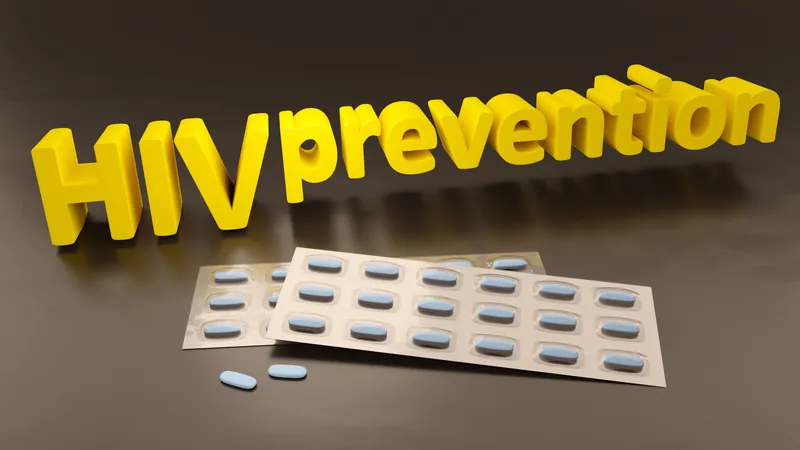
CDC Unveils Vital Updates to HIV Prevention Guidelines—Are You at Risk?
2025-05-08
Author: Yu
A Game Changer in HIV Prevention!
The CDC has just dropped a crucial update on the use of nonoccupational post-exposure prophylaxis (nPEP), transforming how we combat HIV infections. This updated guidance aims to prevent HIV after potential exposure, be it through sexual activity, needle sharing, or other nonoccupational encounters.
The Numbers Don’t Lie: An Ongoing Epidemic
In 2022 alone, nearly 31,800 new HIV infections were recorded—alarming, but a significant decline from the peak years of 1984 and 1985 when over 130,000 people were diagnosed annually. To truly end the HIV epidemic, individuals at highest risk need to take proactive measures through both pre-exposure prophylaxis (PrEP) and post-exposure protocols like nPEP.
New Strategies and Medications!
The updated guidelines reflect recent advancements in antiretroviral (ARV) therapies and new initiatives aimed at implementing nPEP effectively. It’s essential to highlight that while there are no FDA-approved nPEP medications, the suggested choices are currently considered off-label.
Thorough Research Backing New Guidelines
The CDC’s revised recommendations are grounded in a comprehensive analysis of scientific literature from January 2015 to January 2024, along with previous data dating back to 2005. The review incorporated work found in major medical databases, totaling 171 relevant studies—all crucial to forming a robust, evidence-based strategy.
When Should You Consider nPEP?
According to the CDC, nPEP should be considered a medical emergency in the event of potential HIV exposure. The key takeaway is that individuals should start nPEP as quickly as possible—ideally within 72 hours of exposure. If you’ve engaged in any risky behavior, don’t hesitate—act fast!
Post-PEP Precautions are Key!
The recommended course of nPEP lasts for 28 days, and it’s crucial for patients to undergo initial and follow-up HIV tests, ensuring comprehensive care. Even after completing nPEP, transitioning to PrEP is highly advised to mitigate future risks, especially as interruptions in the PEP regimen may still leave individuals vulnerable.
Special Considerations for Vulnerable Populations
Survivors of sexual assault should be offered nPEP, and special care must be taken with younger patients regarding consent. Pregnant or breastfeeding women can also receive nPEP, but under strict medical supervision.
Looking Ahead: Continued Research Needed
The CDC concludes this updated approach provides a safer and more effective means to avert HIV infections. While the current findings are promising—showing that nPEP must be initiated within 72 hours—further research is still underway to explore long-acting injectable therapies and their efficacy.
Your Health is in Your Hands!
Don’t underestimate the importance of timely action following potential HIV exposure. These updated CDC guidelines empower individuals with the knowledge they need to protect their health and the health of our communities. Knowledge is power—stay informed, stay safe!


 Brasil (PT)
Brasil (PT)
 Canada (EN)
Canada (EN)
 Chile (ES)
Chile (ES)
 Česko (CS)
Česko (CS)
 대한민국 (KO)
대한민국 (KO)
 España (ES)
España (ES)
 France (FR)
France (FR)
 Hong Kong (EN)
Hong Kong (EN)
 Italia (IT)
Italia (IT)
 日本 (JA)
日本 (JA)
 Magyarország (HU)
Magyarország (HU)
 Norge (NO)
Norge (NO)
 Polska (PL)
Polska (PL)
 Schweiz (DE)
Schweiz (DE)
 Singapore (EN)
Singapore (EN)
 Sverige (SV)
Sverige (SV)
 Suomi (FI)
Suomi (FI)
 Türkiye (TR)
Türkiye (TR)
 الإمارات العربية المتحدة (AR)
الإمارات العربية المتحدة (AR)